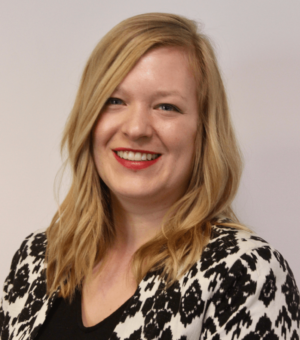Help communities build comprehensive health care systems for people in the justice system
Updated June 15, 2021
Many people reentering their communities after incarceration face significant behavioral and mental health challenges, yet too often are not connected to needed treatment and health care services.
The COVID-19 pandemic has further exacerbated persistent and systemic problems of inequitable access to behavioral health care and services, especially for communities of color. Significant funding—more than $59 billion—through the American Rescue Plan (ARP) can help increase access to health care treatment and services for people in the justice system. This critical investment in community-based health supports provides an opportunity to build and enhance services to break the cycle of incarceration and improve long-term health and well–being.
Funding Breakdown
| Name | Total Amount | Description | Administering Agencies | Eligible Entities | Distribution Mechanisms
|
End Date |
| Funding for COVID-19 testing, contact tracing, and mitigation activities | $47.8 billion | Conduct activities to detect, diagnose, trace, and monitor COVID-19 infections and related strategies to mitigate the spread of COVID-19.
|
Department of Health and Human Services (HHS) | State, local, and territorial public health departments | Grants awarded through existing cooperative agreements and Centers for Disease Control and Prevention (CDC) vehicles, including the Epidemiology and Laboratory Capacity (ELC) Cooperative Agreement
|
Available until expended |
| Funding for Community Health Centers and Community Care
|
$7.6 billion | Expand COVID-19 testing and treatment, deliver preventive and primary health care services, and increase operational capacity for community health centers. | HHS | Community health centers | Grants and contracts | Available until expended |
| Community mental health services block grant | $1.5 billion | Expand comprehensive community mental health services for adults and children with serious mental illness or emotional disturbances, such as screenings, outpatient services, emergency mental health treatment, and day treatment programs. | HHS | State and nonprofit mental and behavioral health agencies | Block grant. Award amounts by state/ territory available via the Substance Abuse and Mental Health Services Administration (SAMHSA)
|
September 30, 2025 |
| Substance abuse prevention and treatment block grant
|
$1.5 billion | Plan and implement programs and activities to prevent and treat substance use disorders. | HHS | States, local governments, and nonprofit agencies | Block grant. Award amounts by state/territory available via SAMHSA.
|
September 30, 2025 |
| Funding for mental health and substance use disorder training for health care professionals and public safety officers | $80 million | Plan, develop and operate training activities to reduce and address suicide, burnout, mental health conditions, and substance use disorders among health care professionals
|
HHS | Health professions schools, academic health centers, state or local governments, Native American tribes, and tribal organizations, or other appropriate public or private nonprofit entities | Grants or contracts | Available until expended |
| Funding for community-based funding for local substance use disorder services
|
$30 million | Support community-based overdose prevention programs, syringe services, and other harm reduction services. | HHS | State, local, tribal, and territorial governments as well as tribal organizations; nonprofit community-based organizations; and health organizations. | Grants | Available until expended |
| Funding for community-based funding for local behavioral health needs | $50 million | Provide mental and behavioral health training, increase telehealth services, and expand mental and behavioral health preventive and crisis intervention services. | HHS | State and local governments, community nonprofits, and health organizations | Grants | Available until expended |
| Funding for expansion grants for certified community behavioral health clinics | $420 million | Expand access to crisis response services through Certified Community Behavioral Health Clinics (CCBHCs) | HHS | Community organizations that meet the criteria to be CCBHCs | Grants | Available until expended |
| Mandatory coverage of COVID-19 vaccines and administration and treatment under Medicaid | 100% federal match (FMAP)
|
Require COVID-19 vaccines and treatment to be provided at no cost to individuals with Medicaid insurance and with a 100% federal matching rate. States can also provide coverage to uninsured individuals. | HHS | State Medicaid agency | One year after the end of the public health emergency | |
| Temporary increase in FMAP for medical assistance under state Medicaid plans which begin to expend amounts for certain mandatory individuals
|
90% federal match (FMAP) for newly covered and 5% for all other Medicaid populations for 2 years | Incentivize states to increase Medicaid coverage. | HHS | State Medicaid agency, executive branch, or legislature | States need to apply and change their state plans. | 2 years |
| Extension of 100 percent federal medical assistance percentage to urban Indian health organizations and Native Hawaiian health care systems | 100% federal match | Increase funding for “urban Indian health organizations and native Hawaiian health care systems.” | HHS | Indian health organizations and Native Hawaiian health centers | Within two years | |
| Additional support for Medicaid home and community-based services during the COVID-19 emergency
|
Increase FMAP by 10% | Expand access to programs where individuals can access health and human service care in their homes and communities instead of treatment facilities. | HHS | State Medicaid agency | Federal match | March 21, 2022 |
| Funding for Education and Awareness Campaign Encouraging Healthy Work Conditions and Use of Mental Health and Substance Use Disorder Services by Health Care Professionals
|
$20 million | Create a national education and awareness campaign for health care professionals and first responders centered on identification, prevention, and treatment of mental health and substance use conditions | Centers for Disease Control and Prevention | Available until expended |
The ARP provides for an additional $350 billion in State and Local Fiscal Recovery Funds for communities to address local fiscal priorities in response to the pandemic. Learn more about how to use these funds to advance safety and justice goals in our guide. State, local and tribal governments can request recovery funds directly through the Treasury’s website.
Key Takeaways
1. Establish comprehensive community-based health care systems: ARP funding can be used to address the COVID-19 pandemic and to invest in broader public health supports, such as community health centers, and mental health and substance use treatment. Given the high rates of mental health and substance use conditions among people in the justice system, investments in comprehensive health care systems—including behavioral health services, harm reduction supports, and physical health services—help meet the needs of this population and reduce duplication of services.
2. Support COVID-19 mitigation for people in the justice system: Jails and prisons have been the sites of some of the largest COVID-19 clusters in the country, placing people who are incarcerated and correctional staff at high risk of exposure to COVID-19. Further, many people who have a history of, or are at risk of, criminal justice contact are at a high risk of contracting COVID-19 and/or are more likely to have serious complications from the virus due to underlying health conditions. ARP funding can be used to support COVID-19 testing, tracing, and mitigation strategies specifically focused on this population to limit exposure and minimize the spread of the virus in communities.
3. Provide behavioral health supports for public safety officers and first responders: Public safety officers and first responders often face stressful work-related situations on a regular basis and, consequently, often experience physical and mental health challenges. ARP resources can be used to address underlying behavioral health needs of public safety officers and first responders—particularly in remote communities—to ensure they receive appropriate treatment and services and can recognize risk factors among the people they encounter.
Other Resources
- Taking the Call: A National Conference Exploring Innovative Community Responder Models
- Explores how jurisdictions are serving as laboratories for innovation to ensure that emergency calls receive the appropriate response
- Building Capacity to Advance Local System Change for People with Behavioral Health Needs: A Snapshot of State-Led Solutions
- Presents four ways that states can direct their efforts to help communities reduce the numbers of people with mental illnesses and co-occurring substance use disorders in local criminal justice systems
- Financially Sustaining Behavioral Health-Criminal Justice Programs
- Outlines key strategies for jurisdictions to financially sustain behavioral health-criminal justice programs
- Using the Web-Based Self Assessment Tool and Technical Assistance Centers to Improve Police and Community Responses to People with Behavioral Health Needs
- Focuses on resources that can be used to support cross-system behavioral health responses through direct assistance, web-based tools, and trainings
- Achieving Cultural Competency in Behavioral Health and Criminal Justice
- Explains cultural competency and its varying components when implementing criminal justice and behavioral health programs
- State Administering Agencies Are Key for Localities Seeking Better Justice and Behavioral Health Outcomes
- Explains how local leaders can use their State Administering Agency when implementing behavioral health programs
Share Your Feedback
We would like to learn more about your plans to use American Rescue Plan funds to advance safety and justice priorities. Take our five-minute survey to help us better understand your community’s questions, plans, and needs.
About the Authors












